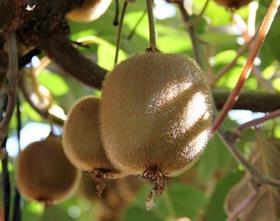
After a record breaking start to this year’s Chilean kiwifruit campaign, Tarun Arora, director of Indian-based marketer IG International, believes the South American nation has the potential to quadruple export volumes to India over the next five years.
Just seven weeks into the 2016 deal, India has already imported over 1,660 tonnes of Chilean fruit, significantly up on the previous record of 823,620 tonnes shipped over the course of last season. Arora anticipates momentum to continue building in both the immediate and long-term future.
“We’re projecting more than 6,000 tonnes of Chilean kiwifruit will come to India this season, and IG expects to handle close to 1m trays (4,000 tonnes).,” Arora told Asiafruit. “I would not be surprised if we see 20,000 tonnes of kiwifruit coming into India from Chile over the next four or five years.”
Some might label Arora’s prediction ambitious. However, given that the Chilean trade has grown from a meager base of 35 tonnes in 2006, there is little doubt the offering has the qualities to make an immediate impression on consumers in the South Asian nation.
Having played a leading role in the development of the kiwifruit category in India, IG International launched its own kiwifruit brand – IGKiwi – at April’s Fresh Produce India event. As the company’s primary supply source, high-quality Chilean fruit will be a crucial part of the brand’s success. To aid the brand’s development and grow consmption levels, IG International has invested in the development and implementation of a new promotional campaign called Kiwolution.
“We want consumption of kiwifruit to grow in India. Kiwifruit is a superfood with an excellent health benefits and consumers are now becoming more educated about the product,” Arora said. “Dengue is common in India, and consumption of kiwifruit can increase the bloodplatelet count. Our motto is to deliver a Kiwolution and make kiwifruit affordable so that we can reach out to the mass market in India.”
India’s retail environment is still dominated by traditional channels, meaning there are challenges associated with distributing, storing and positioning new products in the market. However, Arora is confident these can, and will be, overcome.
“One of the key challenges is to deliver direct to mom and pop stores,” he said. “Mom and pop stores are a tough segment to crack, and they require a lot of bandwidth in terms of logistical support and people to service them. But they are a massive part of India’s traditional retail trade, and they’re excited about ranging pre-packed kiwifruit. I am certain that we’ll be able to penetrate this sector very soon, which will grow overall sales significantly.”






No comments yet